When I wrote about our survey for a new-to-us boat ending after only a couple hours because deal killers were found, I had several questions about what Dave and I would consider to be deal killers.
To us, deal killers are things that could turn the boat into a money pit. Just because something is a big ticket repair doesn’t make it a deal killer if the seller is willing to lower the price to make it work and you’re willing to delay use of the boat while the repair is made. To us, deal killers are:
- Anything structural or a critical system where the repair cost can’t be estimated with a fair degree of certainty, or where the worst case scenario price can’t be known. (For example, if there are engine issues, it might not be possible to know if it can be repaired and what the cost would be, but you could get an estimate for repowering.) If you don’t know the top end number, you can’t negotiate a fair price.
- Anything where the estimated cost and renegotiated deal would take you over budget — either if money or in time. Don’t overlook the time element — how long are you willing to be without the use of the boat? Just because you can make the money work out doesn’t necessarily mean you should take on a major project! And some boats and projects will take you over your budget even if you got the boat for free . . .
- Anything that you’re just not sure could be fixed properly, or where you’re told “we’re just not sure what’s causing that.” These, in particular, are the things to run from!
When we began looking at boats, we had decided that while we might be willing to take on a few small, well-defined projects to make an almost-perfect boat into the perfect one, we didn’t want any major projects. We don’t want to lose a year of cruising (or more), we don’t want to spend next winter in a boatyard and we don’t want to spend our time trying to manage a refit from 1500 miles away.
And we certainly didn’t want a boat where needed repairs couldn’t be estimated because “we can’t tell what has to be done until we tear it apart.” That sounded too much like a bottomless money pit to us.
What are deal killers to you?

Carolyn Shearlock has lived aboard full-time for 17 years, splitting her time between a Tayana 37 monohull and a Gemini 105 catamaran. She’s cruised over 14,000 miles, from Pacific Mexico and Central America to Florida and the Bahamas, gaining firsthand experience with the joys and challenges of life on the water.
Through The Boat Galley, Carolyn has helped thousands of people explore, prepare for, and enjoy life afloat. She shares her expertise as an instructor at Cruisers University, in leading boating publications, and through her bestselling book, The Boat Galley Cookbook. She is passionate about helping others embark on their liveaboard journey—making life on the water simpler, safer, and more enjoyable.
Here’s your “Quick Start” to everything you need to know when living on a boat:
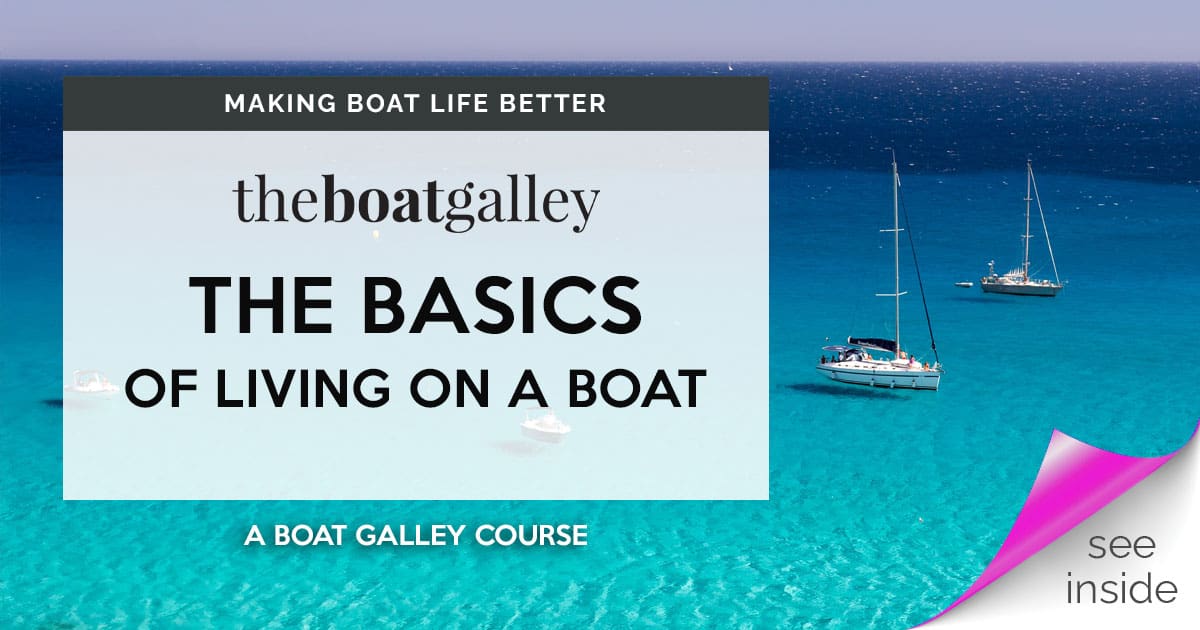

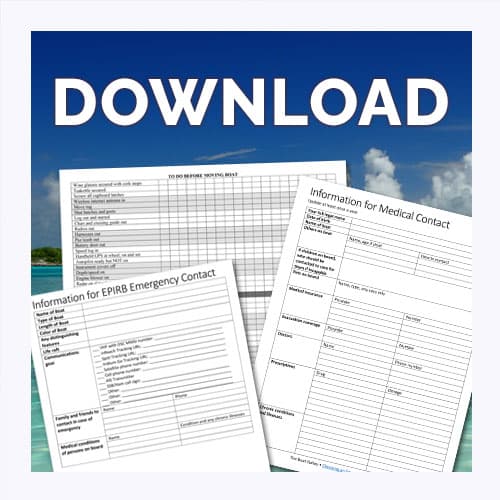


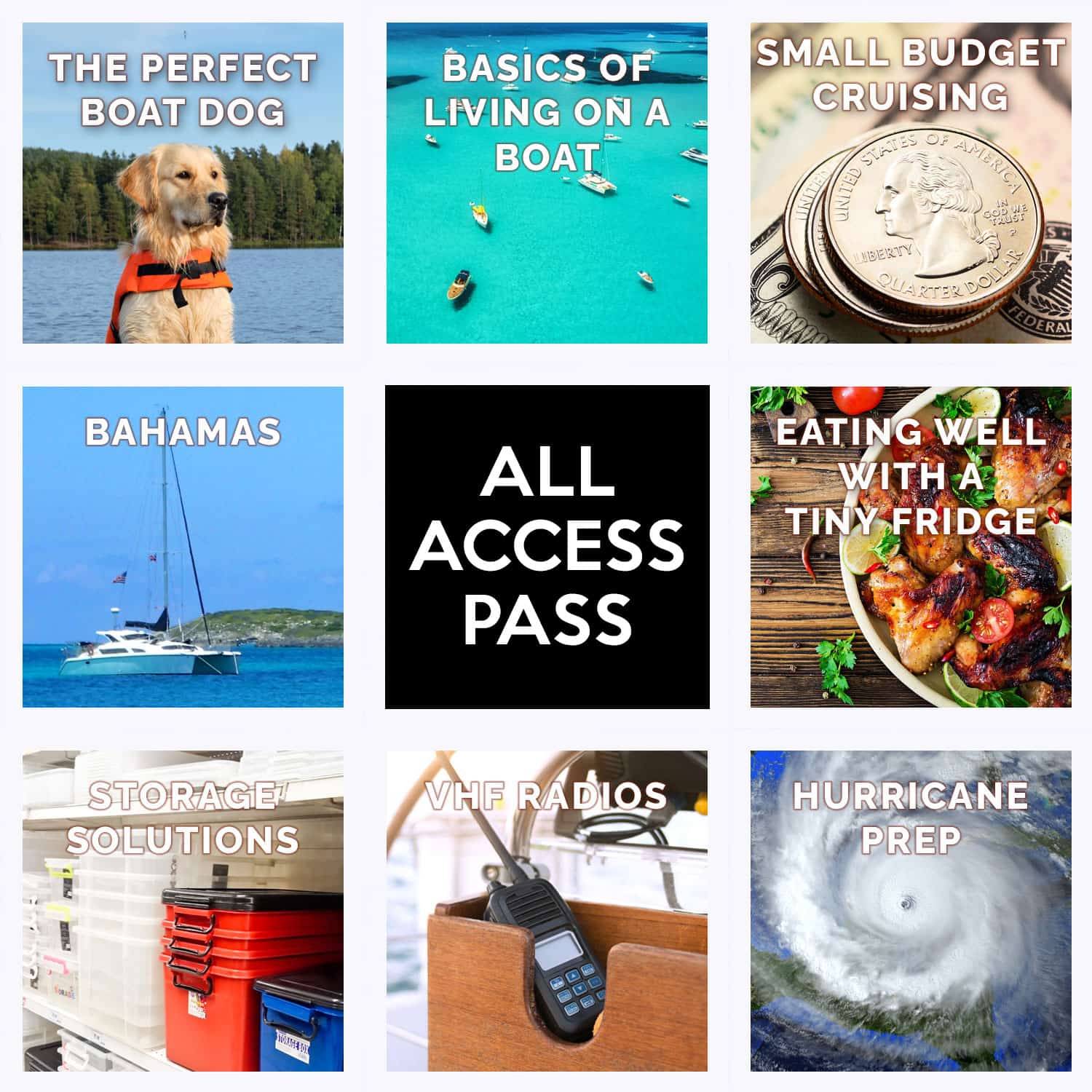


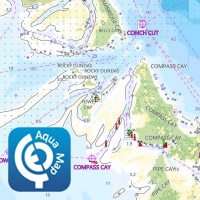
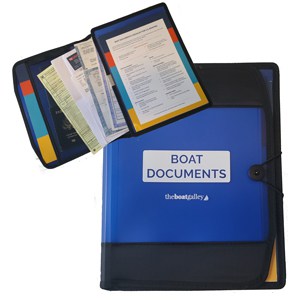

Rebecca Hammond Vaughan says
FYI, talk to Tommy at Sail Away Catamarans (www.sailawaycatamarans.com), he’s an amazing broker and can help you find the cat you want!
DT says
Excellent checklist! If only we would all ‘Learn It, Live It’.
Kathleen Lamoureux says
Buying a boat in Canada vs the United States
Chris says
This may sound a bit odd, but Janet worked in the boat documentation and titling business for years and title searches and documentation chain of owner tracing . It is a very good idea to do a title search before cash changes hands. There are a surprising number of boats out there with wonky titles. While boat liens are recorded, chasing down a boat with a lien on it is quite expensive. Because boats are fundamentally mobile, and because most states do not do title searches before issuing a new one, A boat with a clear title isn’t necessarily a boat with a clear title. We had a boat stolen from us (as in we carried the note, and the buyer stopped paying,) We got a court judgement and lien. The way he was caught was the people he sold it to tried to title it in the same state, and I had visited several dozen state titling offices with a picture of the boat and its particulars. Had they gone more than a few counties away or to another state, we would have been out the money and they would have owned stolen property which could have been seized leaving them boat-less and cashless. Sadly, economic realities of the last five years have increased the number of problematic titles out there.
Another deal breaker would be a boat that has sunk and refloated (especially a hurricane “deal” boat). Much of the damage from inundation is insidious — such as mold growth in unreachable spaces, wiring compromise from unsealed wire ends where crimp connectors were used, engine stringer, bed and mount compromise if the engine was not demounted and the engine compartment corrosion treated, long term plywood delamination… .seen em all.
Mark and Cindy - s/v Cream Puff says
During our search for a boat, we find someone who really needed to sell. The seller disclosed a survey he had contracted at the time of their purchase. It noted hurricane damage but did not specify the extent of the damage. We inquired if the structural integrity of the vessel was compromised. We couldn’t get a clear answer how the repair was made and there was no way of knowing if the repair was performed to the specification of the manufacturer. This was a deal killer. We were grateful to the owner for revealing the problem prior to having to pay for our own survey.
Another boat we visited had be locked up and not ventilated. The mold below was extensive. We could write our names on the walls. Deal killer.
Mark and Cindy – s/v Cream Puff
http://www.creampuff.us
Dick Hermann - m/v Avocet says
It might sound odd, but we look for some kind of parity between the seller’s and the buyer’s desire to make a deal. One should not heavily outweigh the other. It’s been a deal killer for me when the seller is hard to reach, slow to respond, or otherwise less engaged than me in working the transaction.
Deb Lewis says
We recently purchased a Catalina 30. Spent about 3 months “shopping” and since it wasn’t our first used sailboat experience, I think we had come a long way in shopping savvy (we spent a year shopping for our first used boat). We actually had a deal killer this time around.
We found a boat and it was exactly what we wanted and everything on the outside was too good to be true but was a mess inside- but a great price if the only problems were cosmetic on the interior. We asked for and were provided a previous survey. It was easy to see that damage consistent with about a foot of standing water inside the boat (a different Catalina 30) that was noted on a survey dating back a few years had never been addressed in any way. That old survey saved us the cost of a new survey and from thinking this might be a great “fixer upper” before making an offer.
We finally narrowed our search to a serious final three boats – all identical. Based on the previous surveys that we requested and were supplied by an extremely responsible and honest broker, we narrowed the field to one boat and had a new survey done (by an amazing guy). He declared the boat to be in remarkable condition for its age. In addition, he invited us to be there for all or part of the survey and shared some wonderful advice on how to upgrade and improve various equipment and systems.
Surveys aren’t cheap and they’re worth every penny. Before spending a dime for a survey, we wanted to see what had previously been noted on surveys and simply eliminated any boat with structural damage that was either major or had not obviously been addressed. Asking for previous surveys is an often overlooked option and can save lots of time. We are still learning but this saved us a lot of time and money. Our surveyor was so good, I doubt I’d ever use anyone else.
Carolyn Shearlock says
Great idea on the past surveys. We had gotten the previous one, but it was 8 years old.
Summer says
We are in the market for a survey. Please share names and numbers.
Deb Lewis says
Not sure where you are located but if on the east coast or the Carribean, give them a shout. Happy to recommend Johnson Marine Services. Capt Ken Johnson did our survey. Here’s a link to their website: http://www.johnsonmarineservices.com/
John Meyer says
I have found that the best bet for a survey is to contact your insurance carrier and ask them for a list of approved surveyors. Ask me how I know ;-(
Deb Lewis says
As you probably know, a pre purchase survey and an insurance survey are different animals. While your insurance company may have a long list of surveyors with whom they work, it might be a good idea to get other recommendations as well and if you come up hearing the same name from both sides, you’ve probably found a winner.
Chris says
There are surveyors, and there are surveyors. The insurance company recommended surveyor who evaluated our boat for our prospective buyer wrote seven pages of text detailing the miserable condition several items on our boat. Those had never been installed on the boat. [They were from another boat’s survey.] The only way we found out was when the clearly irritated buyer called us and asked why he hadn’t been shown the items when we met to look at the boat.
I watched as she worked and she was constantly on her cell phone making appointments for more surveys. When the valuation on the boat came back ridiculously low, I asked the buyer to ask her why. She said she would never justify a value higher than the BUC book as the insurance companies didn’t like it when she did, and they sent here a lot of business. This person was well known in the area and endorsed by several organizations.
Do as much research on your surveyor as you do on the boat. Our best was a retired chief of quality control for a very well know power yacht company. The first thing he said to us, was I’m not good at the following things and you should get someone to augment me.
Chris says
We always ask if the vessel has ever been subject to an accident or an insurance claim. We also ask if there are any known problems. Getting people to put their responses in writing makes them think carefully. By a known problem it means identifying any issues for which the owner may have had a quote for or that someone else knows about. There is then the possibility of the fact coming out later. We bought a brand new catamaran 20 years ago in South Africa. It turned out the motors had been salvaged from the builders own boat that had hit a reef and sunk. The builder had swopped the motors into our boat – luckily for us we found out via the local Yanmar dealer.
Jim Allen says
The survey showed some hull delamination so i lowered my offer $10,000 and that is what it cost to repair it.